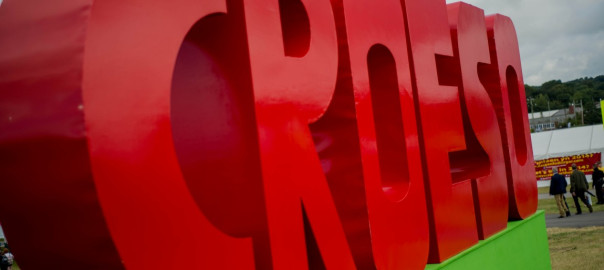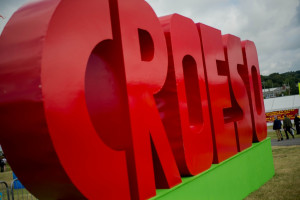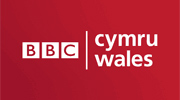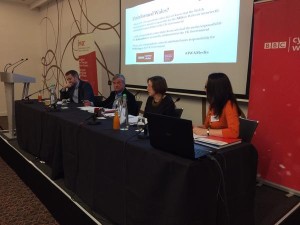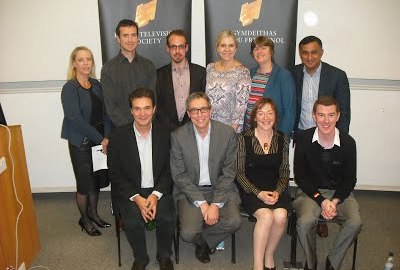Initiator and Organiser: 24th October 2013
a joint RTS / Cardiff University School of Journalism (JOMEC) event
Contributors:
- Professor Justin Lewis and Llion Iwan, Content Commissioner, Factual and Sport, S4C
Consumerism, the hidden driver behind all TV production?
- Professor Karin Wahl-Jorgensen and Ashok Ahir, of Communications Agency, mela; former Head of Politics, BBC Cymru Wales
Impartiality and representation of opinion on TV news
- Dr Cindy Carter and Huw Foulkes, Broadcast Journalist, Ffeil & Newyddion 9, BBC Cymru
What TV news provision does the younger teen audience want?
- Dr Ross Garner and Mike Talbot, Series Editor, Wales This Week, ITV Wales
Producing the ‘Mainstream’ in Wales
- Professor Jenny Kitzinger and Erika Hossington, Series Producer, Casualty, BBC Cymru Wales
How can TV drama represent family experiences of long term ‘coma’?
Dr Cindy Carter, Llion Iwan, Dr Ross Garner, Erika Hossington, Prof Jenny Kitzinger,
Ashok Ahir
Prof Justin Lewis, Mike Talbot, Angela Graham, Huw Foulkes
An enjoyable and thought-provoking event resulting in 3 on-going partnerships:
Prof Jenny Kitzinger and Erika Hossington: a potential new storyline involving coma next year for ‘Casualty’.
Dr Ross Garner and Mike Talbot: collaboration on producing tv in Wales for the mainstream.
Dr Cindy Carter and Huw Foulkes: collaboration on News for young teenagers.
“There are now plans to reflect adverts off the moon,” said Professor Justin Lewis as he argued that all television is ultimately driven by a hidden consumerism. That was just one of the many insights gained as the Wales Centre paired academics with television professionals for one-to-one dialogue and debate at Cardiff University’s School of Journalism, Media and Cultural Studies.
Karin Wahl-Jorgensen reported that the BBC is still trapped in a two major party world when it comes to political reporting, while Jenny Kitzinger told us that the portrayal of people in a coma in hospital drama is not only wrong but actually misleads the public. Other subjects discussed included news provision for the younger teen audience and an attempt to define what the ‘mainstream’ means within commercial British television.
Mike Talbot from ITV Wales said that cage fighting and cuts to council services were both current and mainstream, but that only one was really popular with audiences. So which programme offered true public service broadcasting? As the academics would say – discuss! Tim Hartley
Ashok Ahir during the discussion
